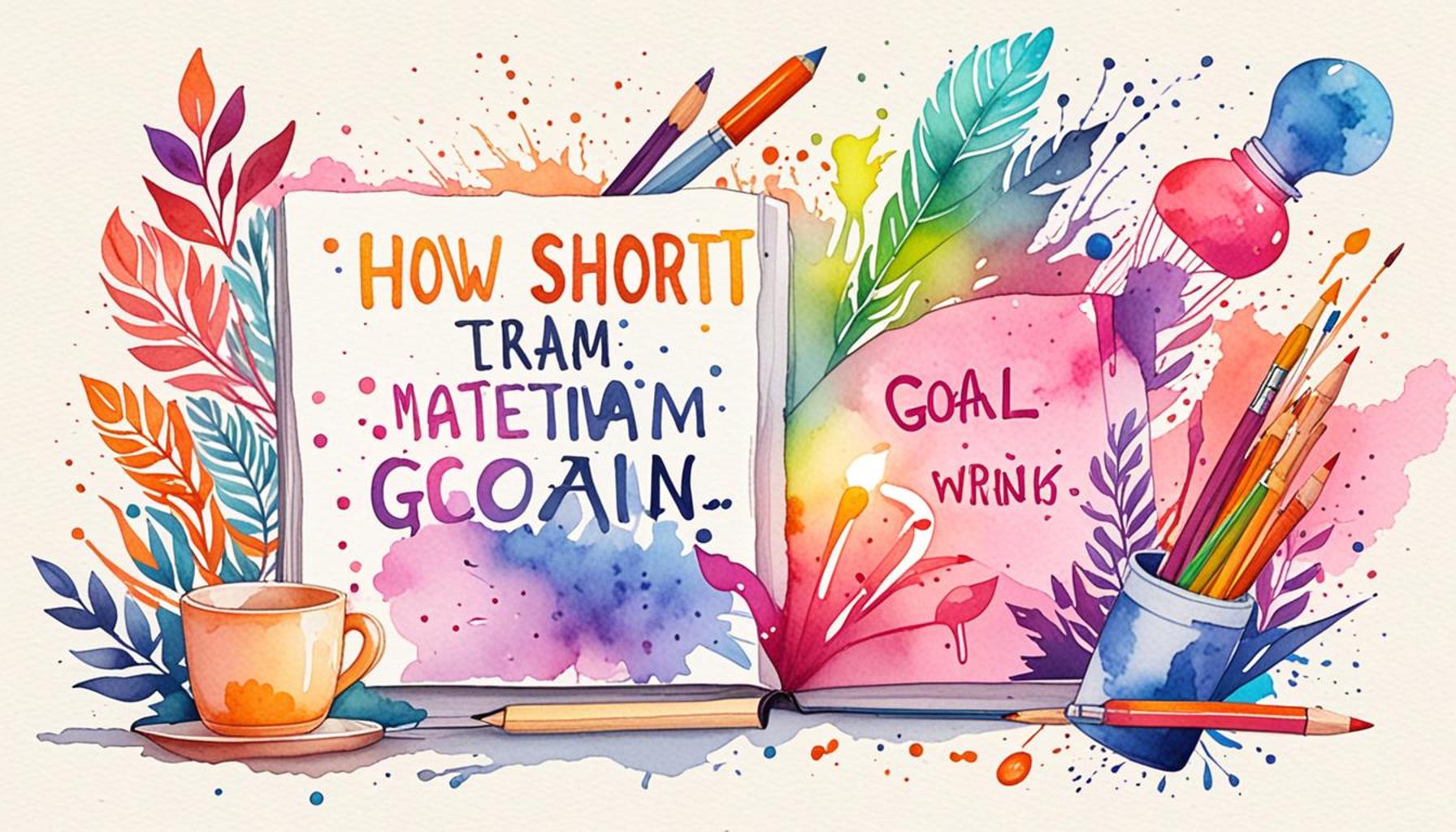The Influence of Goal Setting on Building Healthy Interpersonal Relationships

The Role of Goal Setting in Shaping Interpersonal Dynamics
Goal setting is an essential component of not only personal growth but also the health and success of our relationships. The process of defining clear and achievable objectives greatly influences how we communicate, build trust, and collaborate with others. These dynamics are particularly significant in the context of Nigerian culture, where relationships often form the backbone of both social and professional life.
Enhanced communication is one of the most profound benefits of setting goals within relationships. When individuals articulate their goals, they create a platform for open dialogue. For instance, in a romantic relationship, sharing personal ambitions—whether it’s pursuing higher education or starting a business—can open up discussions about how partners can support one another. This exchange not only clarifies expectations but also fosters emotional connection, enabling partners to voice their needs and desires effectively.
The act of sharing aspirations also leads to improved trust. When individuals divulge their goals, they expose their vulnerabilities, showcasing a willingness to be transparent and honest. This authenticity can deepen the bond between friends or colleagues. For example, a colleague who shares their long-term professional aspirations demonstrates commitment and invites accountability, enhancing mutual respect and trust within the workplace.
Collaboration becomes more effective when people work towards common goals. This teamwork creates a sense of unity vital for the success of any relationship. In Nigeria, community and family are central to social structure, reinforcing the importance of collaborating towards shared objectives, such as planning family events or community initiatives like neighborhood clean-ups. When everyone pulls together, it not only achieves the goal but also strengthens the community and familial ties.
Adapting Goal Setting to Nigerian Cultural Contexts
Understanding cultural nuances is crucial, especially in Nigeria, where interpersonal relations can sometimes be complicated by societal expectations and pressures. Goal setting, tailored to acknowledge these cultural realities, can significantly ease common relationship challenges. For example, conflict resolution often becomes more manageable when individuals have defined goals. Instead of getting bogged down in disagreements, a couple may refer back to mutual objectives to guide discussions, making it easier to find common ground.

Furthermore, shared aspirations can create a profound sense of community. In many Nigerian households, aligning personal objectives with those of family members ensures everyone feels included in decision-making, strengthening familial bonds. Regular family meetings to discuss everyone’s goals can provide a structured way of nurturing relationships, allowing family members to not only support each other’s ambitions but also create a collective vision for the future.
Finally, the practice of nurturing relationships through regular check-ins aligns well with Nigerian values of kinship and camaraderie. By periodically revisiting goals, individuals can express ongoing support and reinforcement of affection. This practice can be especially powerful during significant cultural festivals or rites of passage, where family and community solidarity is emphasized.
As we explore the interconnection between goal setting and relationship building, countless methods emerge that can enhance our interpersonal engagements. This exploration emphasizes the importance of being proactive in fostering connections that nurture both emotional and practical aspects of life. By committing to this practice, individuals can unlock deeper levels of understanding and collaboration, leading to healthier, more fulfilled relationships.
CHECK OUT: Click here to explore more
Transforming Relationships Through Shared Objectives
Goal setting serves as a pivotal tool for enhancing the quality of interpersonal relationships, offering a structured approach to fostering communication, trust, and collaboration. In Nigeria, where community ties and familial connections are integral to social fabric, the impact of clearly defined goals can be especially profound. Setting goals in relationships opens avenues for dialogue that not only clarify intentions but also align the interests of individuals involved. This practice promotes an atmosphere where relationships can thrive on mutual understanding and shared aspirations.
One significant aspect of goal setting is its ability to foster deeper communication. When individuals articulate their personal and collective goals, they encourage open conversations that delve into their individual values and desires. For example, discussing aspirations during a family meeting can lead children to express their academic and career ambitions and allow parents to share their dreams. This reciprocal exchange nurtures a culture of transparency in the household, reinforcing emotional bonds and preventing misconceptions that can arise from unspoken expectations.
The enhancement of mutual trust is another critical element facilitated by goal setting. When individuals express their aspirations and fears, they convey authenticity, thereby building a foundation of trust within relationships. For instance, in a workplace environment, a manager who openly shares their intention to foster a more inclusive team dynamic encourages employees to voice their concerns and ideas, ultimately cultivating a more cohesive team identity. This act of vulnerability can strengthen colleague relationships, leading to a shared commitment to organizational goals.
Moreover, goal setting encourages collaboration among individuals pursuing common objectives. By working together, relationship participants forge alliances grounded in teamwork and joint effort, enhancing their interpersonal dynamics. For Nigerian families, this might manifest in planning celebrations or community projects, showing how collective determination can bring people closer. Such collaboration not only accelerates the achievement of goals but also enriches relationships through shared experiences and teamwork.
The Power of Accountability and Support
Accountability plays a vital role in the efficacy of goal setting within relationships. When individuals agree to support one another in achieving their aspirations, they engage in a self-imposed contract that can lead to personal growth and enhanced relational satisfaction. This can be particularly significant during times of difficulty; knowing that someone has your back fosters resilience. Nigerian communities often reflect this understanding in their communal practices, where members rally together to support each other’s dreams, whether it’s a friend pursuing an educational opportunity or a family member starting a business.
- Individual Goals: Personal aspirations that one seeks to achieve.
- Shared Goals: Collaborative objectives that bring people together.
- Supportive Environment: One in which individuals feel safe to express and pursue their ambitions.
In summary, the influence of goal setting on building healthy interpersonal relationships cannot be understated. By promoting enhanced communication, fostering trust, and encouraging collaboration, individuals can create a robust foundation for their connections. The resulting dynamic not only facilitates individual success but also fortifies the bonds that hold communities together, establishing a legacy of support and shared achievements within the Nigerian context.
| Advantages of Goal Setting | Impact on Interpersonal Relationships |
|---|---|
| Enhanced Communication | Setting goals provides clear pathways for discussion, ensuring both parties understand their intentions. |
| Increased Trust | When individuals commit to shared goals, it fosters a sense of reliability and mutual support. |
| Conflict Resolution | Goal setting aids in identifying common interests, potentially reducing misunderstandings or conflicts. |
| Shared Objectives | Working towards a common goal enhances collaboration and strengthens bonds between individuals. |
| Motivation Booster | Setting goals can uplift spirits and increase the motivation to support each other’s aspirations. |
Utilizing goal setting as a framework cultivates not only a sense of direction but significantly enhances interpersonal dynamics, leading to healthier relationships. When individuals share an aim, it naturally promotes communication and enables them to tackle challenges together. Having mutual goals fosters an environment of accountability, where trust is nurtured through shared success and support. Furthermore, in instances of conflict, a common goal acts as a guiding star, offering clarity and fostering solutions that prioritize relationship harmony over discord. Those invested in each other’s objectives will ultimately find that progress together lays the foundation for more profound connections. In the world of interpersonal relationships, employ the principles of goal setting to create deeper ties and improve overall relational health, leading to a continual cycle of growth and fulfillment. This approach not only benefits individuals but also amplifies the collective potential of the relationships they share.
ADDITIONAL INSIGHTS: Expand your understanding here
Strengthening Bonds Through Mutual Achievement
Goal setting not only enhances the dynamics of interpersonal relationships but also solidifies the bonds between individuals as they navigate challenges and celebrate successes together. In Nigeria, where collaborative endeavors often define communal life, the emotional and psychological impact of achieving shared goals cannot be overstated. The journey toward these goals fosters collective resilience, forms a unique identity among participants, and creates an environment conducive to emotional growth.
The concept of collective achievement is central to understanding the influence of goal setting on relationships. When a group of individuals, whether friends, family members, or colleagues, strives towards a common objective, they cultivate an atmosphere of mutual support and shared purpose. In the Nigerian context, this is often seen in community gatherings where groups commit to projects such as building a community center or organizing local festivals. These efforts not only fulfill a tangible goal but also weave together a rich tapestry of shared memories, leading to strengthened relationships among participants.
Another aspect to consider is how goal setting empowers individuals to navigate conflicts effectively. Differences in aspirations can sometimes lead to misunderstandings; however, a clear framework for discussing and realigning goals can mitigate potential discord. For instance, a married couple in Nigeria may face tensions regarding financial priorities. By setting mutual financial goals, such as saving for a home, both partners can engage in constructive discussions. This aligns their priorities and reduces the likelihood of disputes, creating a sense of partnership and understanding.
The Role of Cultural Context in Goal Setting
Cultural norms significantly shape the goal-setting process within Nigerian relationships. In many Nigerian communities, the traditional value placed on family and communal ties affects how goals are established and pursued. For example, the culturally significant practice of “Iya Eko” (encouraging family and kin) reflects the societal expectation of solidarity. This can translate into collective goals, such as ensuring that all children within a family can access education. Such initiatives not only fulfill individual ambitions but also affirm communal identity and support structures.
- Conflict Resolution: Setting goals together can help address and resolve conflicts by fostering understanding.
- Cultural Influences: The role of tradition in shaping how goals are defined, pursued, and celebrated.
- Collective Memory: Shared achievements create lasting memories that further strengthen connections among individuals.
As members of a community work to achieve shared objectives, they experience the transformational power of collaboration. This not only breeds a sense of belonging but also instills a shared narrative that is cherished over time. With the myriad of cultures in Nigeria, the influence of goal setting extends beyond the confines of individual relationships; it enters the collective consciousness, reaffirming the societal values that hold communities together.
As we delve deeper into the role of goal setting in fostering healthy interpersonal relationships, it becomes clear that the interplay of shared ambitions and cultural context produces a unique environment where trust flourishes, communication thrives, and bonds are reinforced. The layers of meaning attributed to these goals, particularly in a rich cultural landscape like Nigeria, add depth to interpersonal engagements, enabling individuals to grow both separately and together.
LEARN MORE: This related article may interest you
Conclusion: The Transformative Power of Goal Setting
In conclusion, the impact of goal setting on building healthy interpersonal relationships emerges as a significant force in fostering connection, understanding, and collaboration. As individuals in Nigeria and beyond come together to pursue shared objectives, they cultivate a rich environment characterized by mutual support, enhanced communication, and collective achievement.
The art of setting goals not only addresses individual aspirations but also mitigates conflicts and reinforces commitment. By engaging in structured discussions around their goals, whether in familial, friendship, or professional contexts, individuals can align their priorities and reduce misunderstandings, thereby enhancing trust and solidarity. This dynamic is especially poignant in Nigeria, where cultural values emphasize communal ties and collective strength.
Moreover, the shared journey towards achieving common goals creates lasting memories and a strong sense of belonging. These experiences serve to solidify bonds and nurture an identity that transcends individual differences. The celebration of collective victories and the resilience formed through joint endeavors highlight the importance of collaboration in sustaining and strengthening relationships.
As we reflect on the powerful influence of goal setting, it becomes evident that it is not merely a personal endeavor but a communal one that echoes through various aspects of societal life. Consequently, embracing this practice can enrich connections and fortify the fabric of our interpersonal relationships, enriching not only those we interact with but also enhancing our collective experience as a community.


